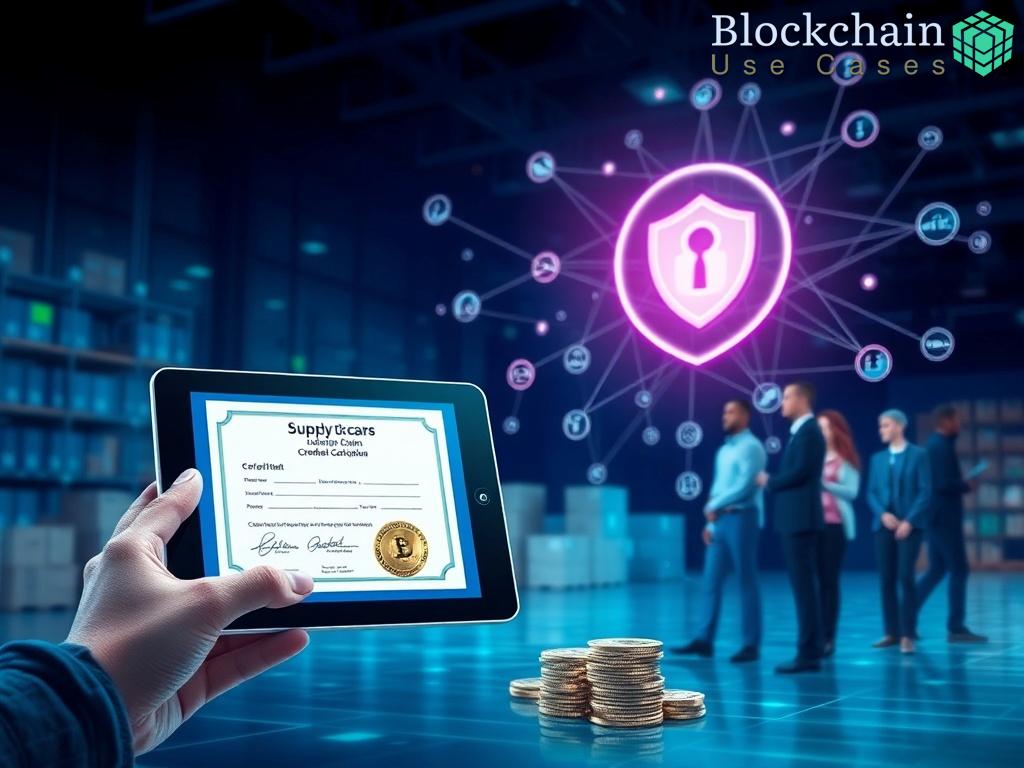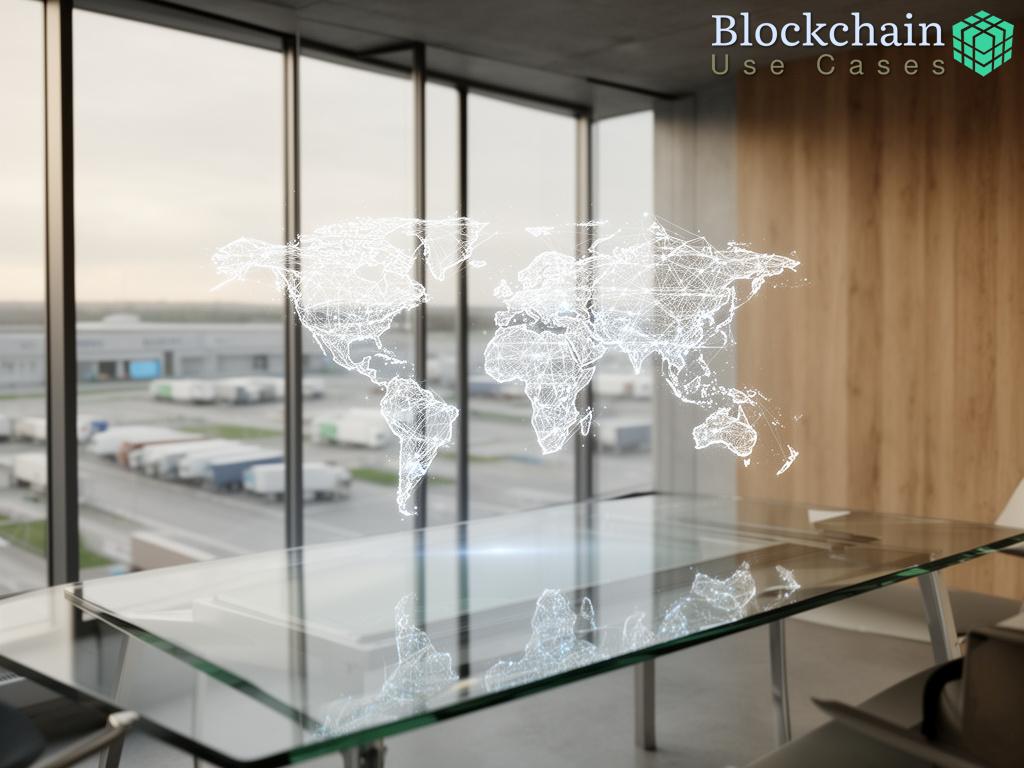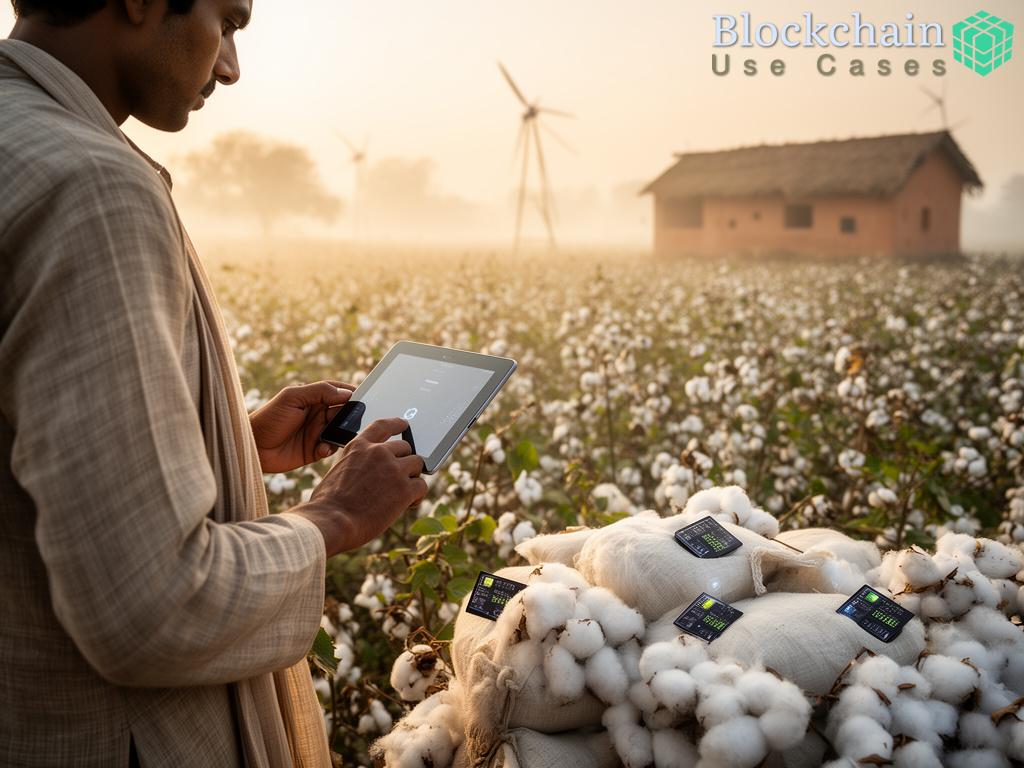Introduction to Tokenized Supply Chain Certifications
Revolutionizing the Verification Process
In today’s fast-paced global economy, the integrity and transparency of supply chains have never been more critical. As businesses increasingly rely on decentralized networks to source materials and deliver products, traditional certification methods have shown significant limitations. Tokenized supply chain certifications offer a transformative solution, leveraging blockchain technology to ensure accurate and immutable records of credentials. This approach not only enhances trust among stakeholders but also streamlines the verification process, paving the way for a more efficient supply chain ecosystem.
The Advantages of Tokenization in Credentialing
Tokenization refers to the process of converting rights to an asset into a digital token on a blockchain. In the context of supply chain certifications, this method provides several noteworthy advantages:
- Enhanced Security: Tokenized credentials are cryptographically secured, reducing the risk of fraud and unauthorized alterations.
- Real-Time Verification: Stakeholders can instantly verify certifications at any point in the supply chain, minimizing delays and enhancing operational efficiency.
- Improved Traceability: Each token contains comprehensive data about the certification process, facilitating better tracking and accountability.
- Cost Efficiency: By automating the verification process, businesses can significantly reduce compliance costs and resource allocation.
Comparative Analysis of Traditional vs. Tokenized Certifications
To fully appreciate the benefits of tokenized supply chain certifications, it’s crucial to compare them with traditional certification methods. The following table highlights key differences:
| Aspect | Traditional Certification | Tokenized Certification |
|---|---|---|
| Verification Time | Days to Weeks | Instant |
| Security | Vulnerable to Fraud | Highly Secure |
| Cost | High Compliance Costs | Lower Overall Costs |
| Transparency | Limited Visibility | Full Traceability |
The transition to tokenized certifications marks a significant step towards more resilient supply chains. As organizations continue to adopt this innovative approach, the landscape of credential verification will evolve, fostering a culture of trust and efficiency.
Benefits of Enhanced Credential Verification
Streamlined Processes and Increased Efficiency
The advent of tokenized supply chain certifications marks a pivotal shift in how credential verification operates within industries. By digitizing credentials and anchoring them on a blockchain, organizations can reap significant benefits. One of the primary advantages is the elimination of cumbersome paperwork and prolonged verification timelines. With instant access to verified credentials, businesses can enhance their operational workflows, allowing for quicker decision-making and smoother transactions across the supply chain.
Boosting Stakeholder Confidence
In today’s competitive market landscape, transparency and accountability are paramount. Tokenized certifications empower stakeholders by providing them with verifiable and immutable records. This fosters greater trust among partners, suppliers, and customers, as they can independently verify the authenticity of certifications at any time. As a result, businesses can build stronger relationships based on mutual confidence and reliability, which are essential for long-term success.
Comprehensive Overview of Benefits
To illustrate the multifaceted advantages of enhanced credential verification through tokenization, the following list encapsulates key benefits:
- Fraud Mitigation: The cryptographic nature of tokens significantly reduces the likelihood of fraudulent activities.
- Real-Time Access: Stakeholders can access and verify certifications immediately, ensuring they have the most up-to-date information.
- Cost Reduction: By diminishing the need for manual verification processes, companies can cut down on compliance-related expenditures.
- Data Integrity: Each token is linked to a blockchain entry, guaranteeing that the information remains untampered and accurate.
- Scalability: As businesses grow, the tokenized system can easily adapt to increased volumes of verification without compromising efficiency.
Ultimately, the transition towards tokenized certifications is not just a technological upgrade; it represents a fundamental change in how industries perceive and manage credential verification. Embracing this innovative approach could lead to a future where trust and efficiency are at the forefront of supply chain operations.
Technological Framework for Tokenization
The adoption of tokenized supply chain certifications necessitates a sophisticated technological framework that underpins the entire process. This framework not only ensures the security and integrity of credentials but also facilitates seamless interactions among all stakeholders within the supply chain. At the core of this transformation lies blockchain technology, which serves as the foundational layer that enables the creation, issuance, and verification of digital tokens representing certifications.
One of the pivotal components of this technological infrastructure is the use of smart contracts. These self-executing contracts are programmed to automatically enforce the terms of certification issuance and verification, thereby eliminating the need for intermediaries. By automating these processes, smart contracts reduce the potential for human error and enhance operational efficiency. Moreover, the code embedded within these contracts can be tailored to meet specific compliance requirements, ensuring that all certifications adhere to regulatory standards and industry best practices.
Another significant aspect of the technological framework is the integration of decentralized identity solutions. These solutions empower individuals and organizations to control their own digital identities and the credentials associated with them. Through the issuance of verifiable credentials, businesses can securely share their certification records with various stakeholders without compromising sensitive information. This approach not only enhances privacy but also fosters a culture of transparency, as all parties can independently validate the authenticity of the credentials in real-time.
A crucial element that complements this framework is the interoperability of different blockchain networks. As various industries adopt tokenization, the ability for different systems to communicate and share data becomes essential. Interoperability allows for a cohesive ecosystem where certifications issued across multiple platforms can be recognized and verified uniformly. This not only broadens the scope of tokenized certifications but also enhances their acceptance across global supply chains, paving the way for worldwide standardization.
The technological framework for tokenization transcends traditional certification methods, creating a robust environment that promotes trust and efficiency in supply chains. By leveraging blockchain, smart contracts, decentralized identities, and interoperability, organizations can revolutionize their credential verification processes, ultimately fostering a more resilient and transparent supply chain landscape.
Challenges in Implementing Tokenized Systems
As the momentum for tokenized supply chain certifications grows, it is essential to address the challenges associated with implementing these systems. The shift from traditional certification methods to a blockchain-based framework presents a myriad of obstacles that organizations must navigate carefully. Understanding these challenges is crucial for stakeholders as they pursue the benefits of enhanced verification and transparency that tokenization promises.
The first significant challenge lies in the adoption of new technologies. Many organizations still rely on legacy systems that lack the infrastructure necessary for integrating blockchain technology and smart contracts. Transitioning to a tokenized approach requires not only technological upgrades but also considerable investment in training personnel to manage and operate these advanced systems. The resistance to change, often stemming from a reluctance to abandon familiar processes, can hinder progress and slow down the implementation of tokenized certifications.
Additionally, regulatory concerns pose another layer of complexity. The landscape of blockchain technology and tokenization is still evolving, and many regulatory frameworks have yet to catch up. Organizations must navigate a patchwork of regulations that differ by region and industry, raising questions about compliance and legal standards for tokenized credentials. Without clear regulations, businesses may hesitate to invest in tokenization, fearing potential legal repercussions or uncertainty surrounding their certification processes.
Another challenge is ensuring interoperability among different blockchain platforms. As organizations adopt various tokenization solutions, the lack of standardized protocols can create silos that inhibit the seamless exchange of certification data. For tokenized systems to achieve their full potential, it is imperative that stakeholders collaborate to develop industry-wide standards that facilitate communication and data sharing across diverse platforms. This collaboration will ultimately enhance the acceptance of tokenized certifications within global supply chains.
Future Trends in Supply Chain Certification
Anticipating the Evolution of Tokenized Certifications
The landscape of supply chain certifications is on the brink of a significant transformation. As organizations increasingly embrace tokenization, the future is set to bring about revolutionary changes that will redefine credential verification. This evolution is not merely about technology; it encompasses a broader cultural shift towards increased transparency, resilience, and trust within supply chains. Understanding these future trends will be crucial for businesses aiming to stay competitive in an ever-evolving market.
Emerging Trends Shaping the Certification Landscape
As tokenized systems gain traction, several key trends are expected to shape the future of supply chain certifications:
- Decentralized Autonomous Organizations (DAOs): The rise of DAOs will empower stakeholders to participate in certification processes, democratizing decision-making and enhancing accountability.
- Artificial Intelligence Integration: Leveraging AI to analyze certification data will optimize verification processes, enabling predictive analytics and improving decision-making.
- Continuous Compliance Monitoring: Tokenization will facilitate real-time compliance checks, allowing businesses to proactively address regulatory requirements and avoid penalties.
- Sustainable Practices Tokenization: Certifications related to sustainability will be tokenized, providing traceable proof of eco-friendly practices across supply chains.
- Enhanced User Experience: With user-centric design, platforms for tokenized certifications will become more intuitive, fostering broader adoption.
Charting a Path Forward: The Roadmap to Success
To successfully navigate the future of tokenized supply chain certifications, organizations should adopt a strategic approach that incorporates the following key steps:
- Invest in Education and Training: Equip teams with knowledge of blockchain technology and tokenization.
- Collaborate with Industry Peers: Engage in partnerships to establish standardized protocols for interoperability.
- Stay Ahead of Regulatory Changes: Actively monitor evolving regulations to ensure compliance.
- Embrace Innovation: Continuously explore emerging technologies that can enhance certification processes.
- Focus on Sustainability: Align certification efforts with environmental goals to meet consumer demand for sustainable practices.
As tokenized supply chain certifications continue to evolve, organizations that proactively adapt to these trends will position themselves for success in a rapidly changing environment. By embracing innovation and fostering a culture of trust, businesses can enhance their operational efficiency and strengthen their competitive edge.





